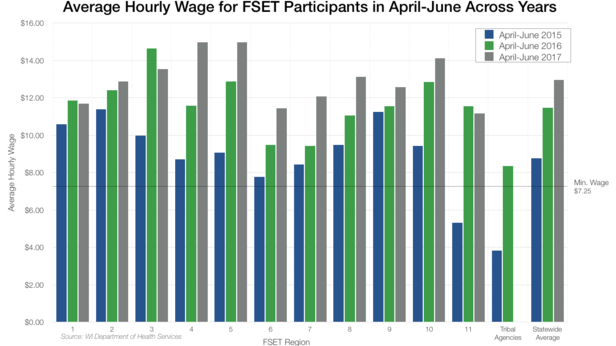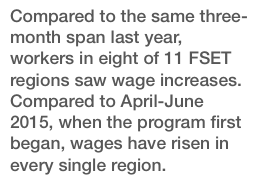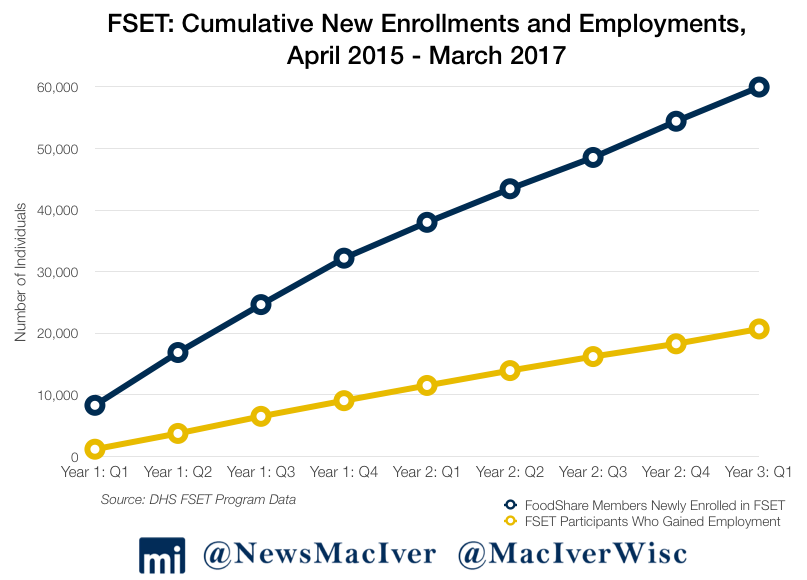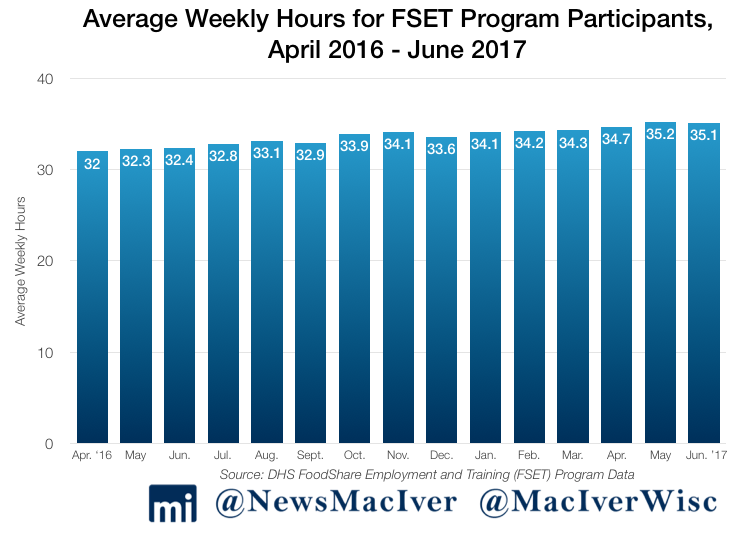
Average Wages and Weekly Hours Continue to Grow in Wisconsin’s FSET Program
October 2, 2017 | MacIver News Service
[Madison, Wis…] Nearly 21,000 Wisconsinites have gained employment after participating in the FoodShare Employment and Training Program (FSET), according to new data from Wisconsin’s Department of Health Services (DHS). The data suggests that the perks of the program – including career training, stable employment, and higher wages – have attracted newcomers to join on their own.
The update comes just over two years after Gov. Scott Walker’s administration implemented new welfare reform initiatives. Able-bodied individuals without dependents who are aged 18-49 and who wish to receive FoodShare benefits must now participate in one of Wisconsin’s job training programs. Individuals must either work or participate in a program such as FSET for a combined 80 hours per month. Failing to meet the requirements for three months results in participants losing FSET benefits for three years.
In June 2017, the average FSET participant worked 35.1 hours per week and earned $13.10 per hour – nearly double the state’s minimum wage, according to the data release. Since 2015, the average hourly statewide wage of an FSET participant has increased by more than $4 per hour.

In a statement, DHS Secretary Linda Seemeyer said that “the FSET program gives people the helping hand they need to start building their future, independent of government assistance.”
The average hourly wages of participants from April-June 2017 was up to $12.96 per hour while the average hours worked in a week rose to 35 hours. Compared to the same three-month span last year, workers in eight of 11 FSET regions saw wage increases. Compared to April-June 2015, when the program first began, wages have risen in every single region.

Region 4, encompassing Fond du Lac, Winnebago, Green Lake, Waushara, Waupaca, and Calumet counties, experienced the largest increase in average hourly wages. Wages in the region are up to $14.98. In April-June of the previous year, average hourly wages were at $11.57.
Since the implementation of the reforms in April 2015, 59,961 FoodShare recipients have enrolled statewide. The number of adults who must participate in FSET in order to receive benefits has continually decreased, while voluntary participation has increased.
Shortly before releasing data for April through June of this year, DHS also released an extensive report on the FSET program’s second year.
Under the recently-passed 2017-19 state budget, the work requirements will be expanded to new populations. Able-bodied individuals with children aged six or older will also be required to participate in FSET or other job training programs in order to continue receiving benefits.
